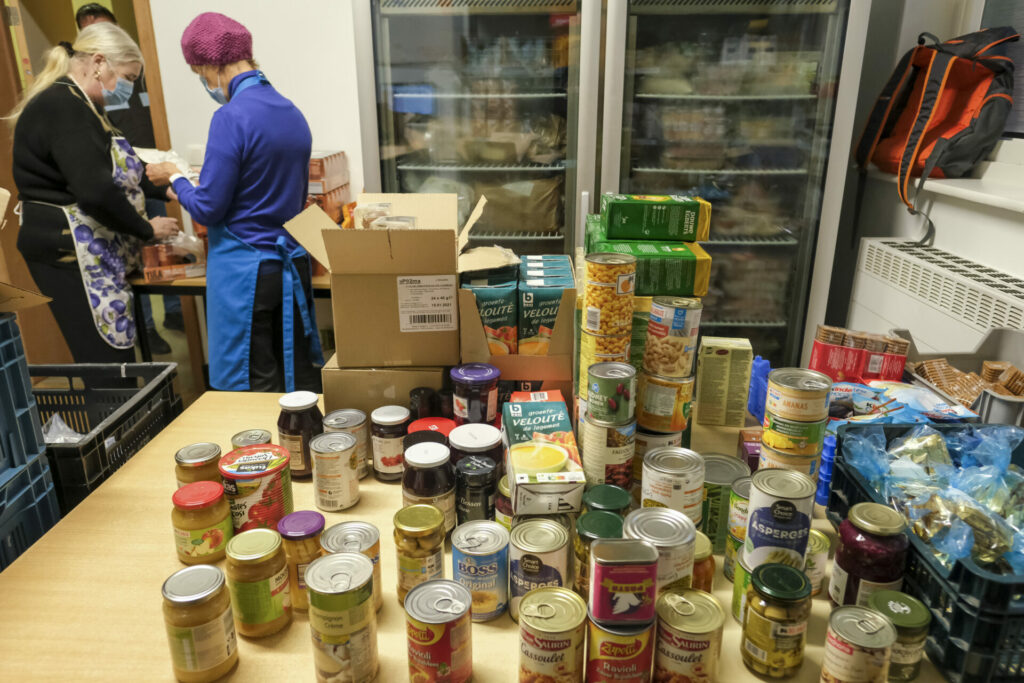The number of people applying to food banks for food aid increased by 18.2% in 2022. Yet the volume of the food that was distributed barely grew – resulting in the average amount of food donated per person falling from 125.4 to 109.9 kilograms.
Inflation, increased food and energy costs and the tense geopolitical situation had a big impact, the Belgian Federation of Food Banks stated on Monday. While in January, 177,238 people applied for food aid, that number had risen to 209,450 in December. On average, 193,344 people per month requested food aid last year.
"In the entire history of food banks (since 1986), we have never seen such an increase," said Jef Mottar, managing director of the Federation of Belgian Food Banks during a press conference.
However, the quantity of food distributed rose much less sharply: from 22,229 tonnes in 2021 to 23,036 tonnes last year (+3.6%). As a result, food banks were only able to provide four meals per person per week, compared to five a year earlier.
Related News
- Food banks struggle with lack of supply as demand increases
- Poor becoming poorer in Belgium, lower middle class increasingly struggling
The outlook for the coming years is pessimistic, the federation said. The EU budget, which was noticeably higher in 2022 and 2023 due to recovery funds after the Covid-19 crisis, will decrease by a third in 2024.
As a result, the federation estimates that the volume of comestibles will shrink by 2,900 tonnes (-12.5%), as the European subsidies are by far the biggest source of supply.
"We are aware of the challenges, but will do everything to find solutions," said president Piet Vanthemsche. Among other things, the food banks want to focus on structural government support and encouraging food donations through additional financial support measures.

